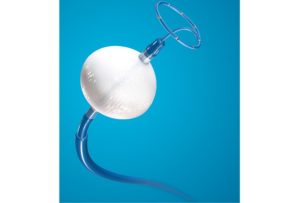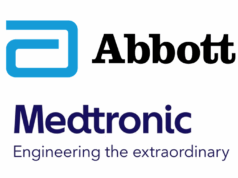
New findings from the CRYO4PERSISTENT AF clinical trial demonstrate improved quality of life, reduced symptoms from abnormal heart rhythms, and low incidence of reinterventions and repeat ablation procedures. The study evaluated patients with symptomatic persistent atrial fibrillation (AF) treated with the Medtronic Arctic Front Advance Cryoballoon, and the results were presented at the 2018 European Society of Cardiology Congress (ESC; 25–29 August, Munich, Germnay). The Arctic Front Advance Cryoablation System is not approved for treating persistent AF in the USA.
Patients treated with cryoballoon ablation experienced clinically meaningful changes in Quality of Life scores, with a 7.1 point average improvement in physical quality, and a 3.3 point average improvement in mental health quality component scores (using the SF-36 Short Form Health Survey, which is a validated tool routinely used in clinical research to assess health outcomes in clinical studies). Patients experienced a significant reduction in symptoms: While 92% of patients had symptoms such as dizziness, palpitations and fatigue prior to cryoablation, only 16% of patients had arrhythmia-related symptoms a year after treatment (P < 0.0001). The severity of symptoms also decreased after cryoballoon treatment, from 2.1 to 1.3 (p<0.01) using the European Heart Rhythm Association AF Symptom Score, and New York Heart Association (NYHA) class improved by one or more functional class in 47% of patients (from baseline to 12 months).
“These findings highlight the advantage of cryoballoon ablation in patients with persistent AF, demonstrating that patients have fewer symptoms after treatment and a significant improvement in their quality of life,” said K R Julian Chun, Cardioangiological Center Bethanien, Agaplesion Markus Hospital, Frankfurt, Germany, and co-investigator of the study. “Paired with the study data showing a low incidence of reinterventions, it’s clear to see the benefit for both patients and healthcare providers.”
Although patients entering this study already had progressed to an advanced AF disease stage, which traditionally has been more difficult to treat, the study found that only 17 of the 101 patients in the trial required a repeat ablation at the time of an arrhythmia recurrence. In addition, direct current cardioversion, a procedure to reset an abnormal heart rhythm back to normal, was only required for eight patients at the time of recurrence. Further, only three patients in sinus rhythm remained on antiarrhythmic medication at the completion of the study.
The primary CRYO4PERSISTENT AF study results, presented earlier this year and published this week in the Journal of the American College of Cardiology: Clinical Electrophysiology, demonstrated that 60.7% of patients were free from all atrial arrhythmias (adjudicated AF, atrial flutter or atrial tachyarrhythmias), at one year following a single PVI-only cryoballoon ablation procedure. The study findings also demonstrated short and predictable procedure times of 53±22 minutes with the cryoballoon and a low complication rate of 4%.









